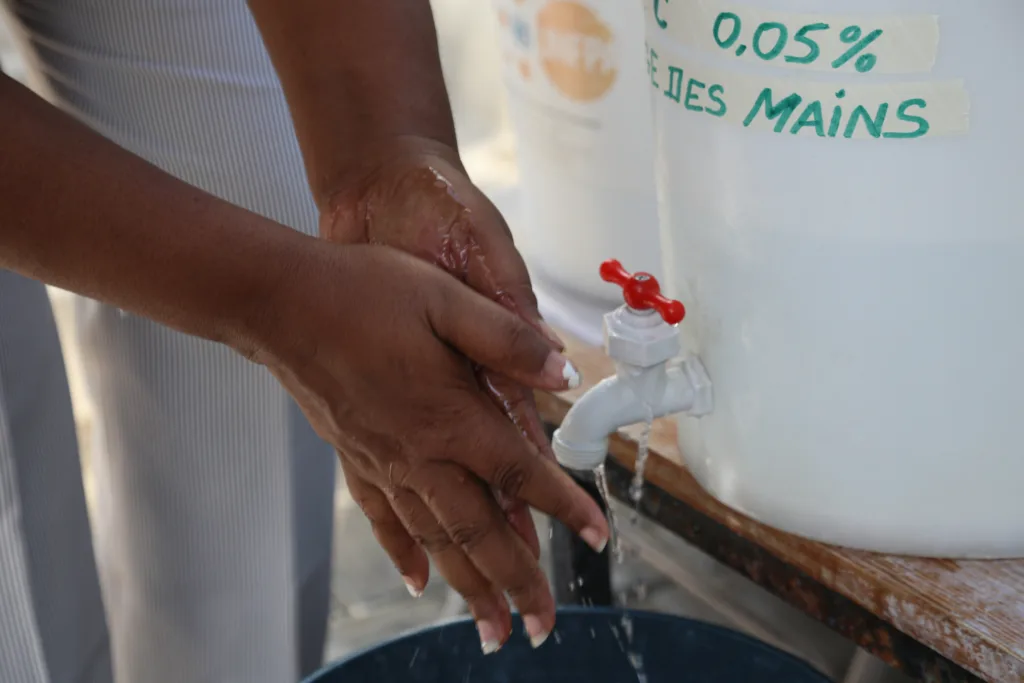More than 100,000 patients each year
Since 1982, GHESKIO has provided world-class medical care to the poorest of the poor in Haiti. Because our patients live in extreme poverty, they are at high risk for many diseases. That’s why we always provide healthcare free of charge, including tests, diagnoses, treatment services and medications.
We provide full-scale medical services, with a special focus on several core programs.
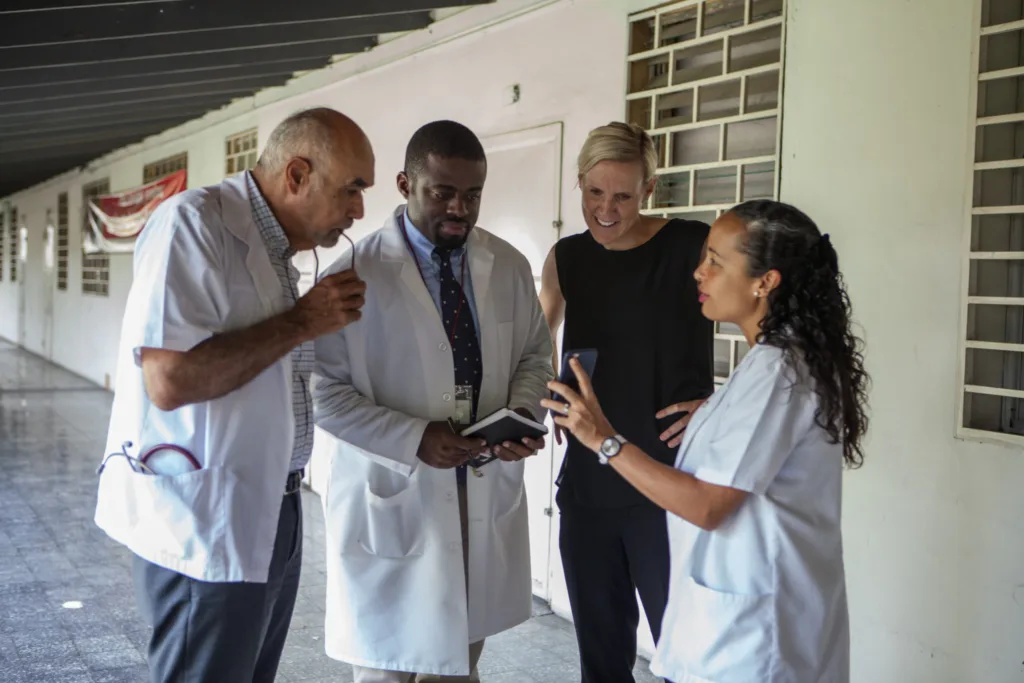
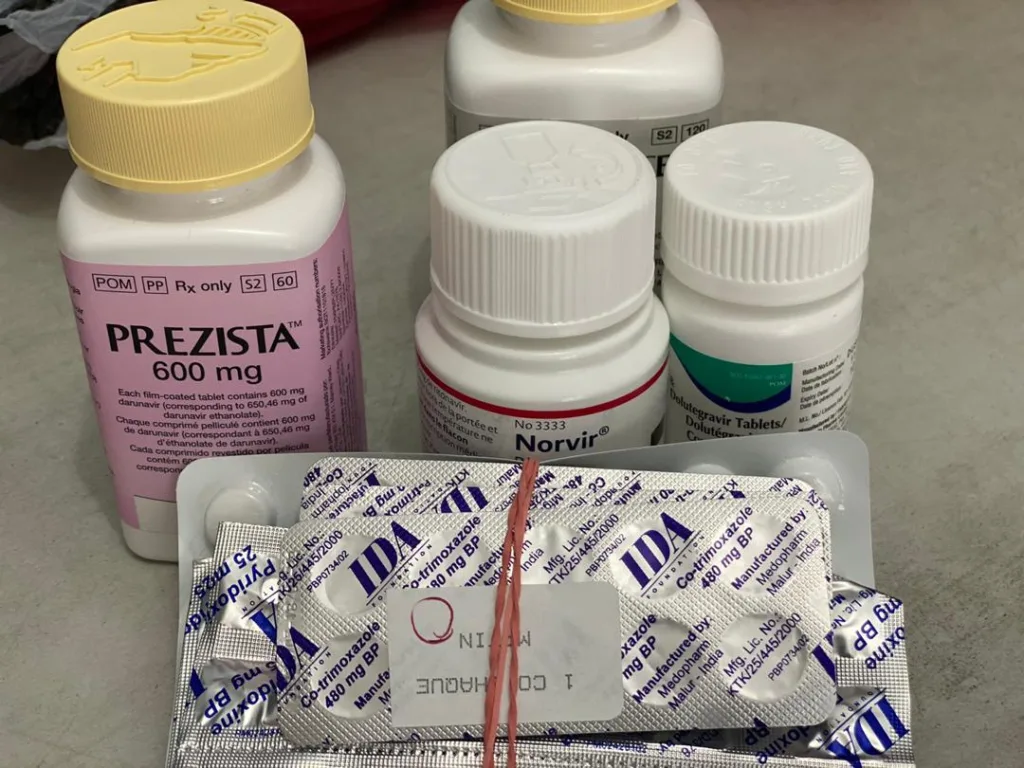
HIV testing, diagnosis and treatment
For more than 40 years, we’ve partnered with leading organizations to combat the HIV/AIDS epidemic. Our researchers identified contaminated blood transfusions as a major mode of HIV transmission, and then worked with the government to place the Haitian Red Cross in total control of blood banking. We conducted clinical trials to define effective therapeutic and preventive interventions for HIV. We documented the success of antiretroviral therapy (ART) in resource-poor settings, and published ART treatment initiation criteria that led the World Health Organization to change international guidelines.
In 1985, we opened the country’s first HIV Voluntary Counseling and Testing Center. The number of people seeking testing continues to increase. We partnered with the Ministry of Health to reduce the rate of transmission of HIV from pregnant mother to child from 30% to less than 4%. As our HIV care and prevention services have expanded, HIV prevalence in Haiti has decreased from 6.2% to less than 2% in 2021.
We’ve partnered with the Ministry of Health to implement our prevention and care model to a network of more than 27 healthcare centers. GHESKIO provides training, supervision, financial oversight and quality control for all HIV and TB clinical services at these sites.
TB testing and treatment
Tuberculosis remains a leading cause of illness and death worldwide. Haiti has the highest TB incidence and prevalence in the region (194 and 254 cases per 100,000 people, respectively). GHESKIO has provided TB testing and treatment since its inception.
After the 2010 earthquake displaced 1.5 million people, 3,000 TB patients lost access to treatment, leading to a surge in TB cases and an outbreak of multidrug-resistant TB (MDR-TB) in overcrowded camps. In response, GHESKIO opened a 100-bed TB field hospital, tripling treatment capacity from 600 to 1,800 patients annually. By 2012, TB rates in the nearby slum ‘City of God’ had risen to 768 cases per 100,000.
Today, GHESKIO is Haiti’s largest TB center, treating 3,000 patients annually, including those with MDR-TB. While standard TB treatment lasts six months, MDR-TB requires up to two years. GHESKIO operates one of only three MDR-TB hospitals in Haiti, offering long-term care in an open, sunlit facility for up to 33 patients..
In addition to testing and treatment, GHESKIO has carried out extensive research on TB over the past three decades, of which the findings have been published in peer-reviewed medical journals.
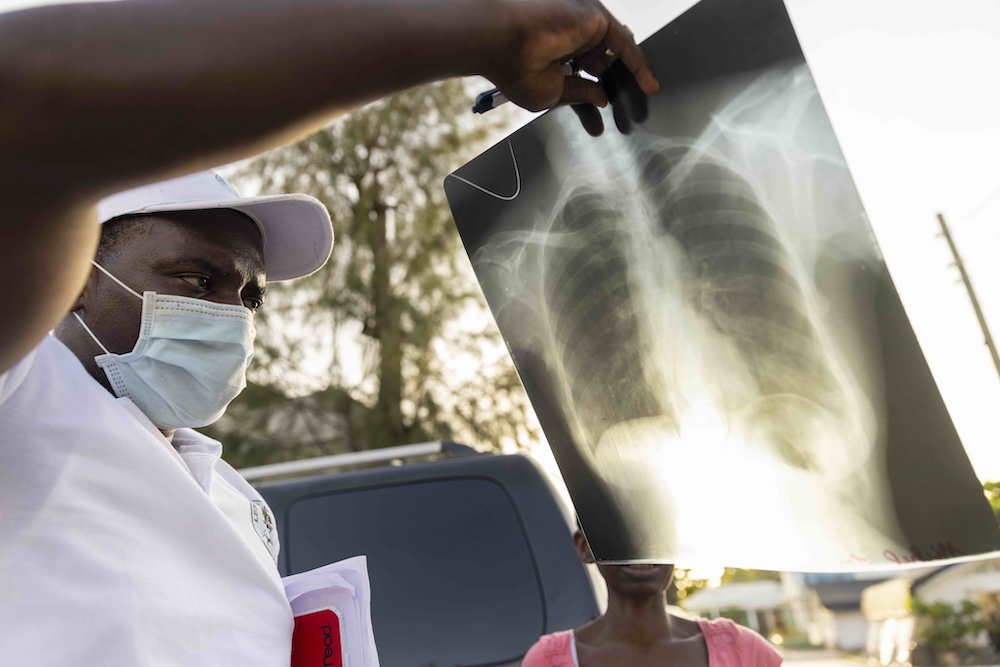
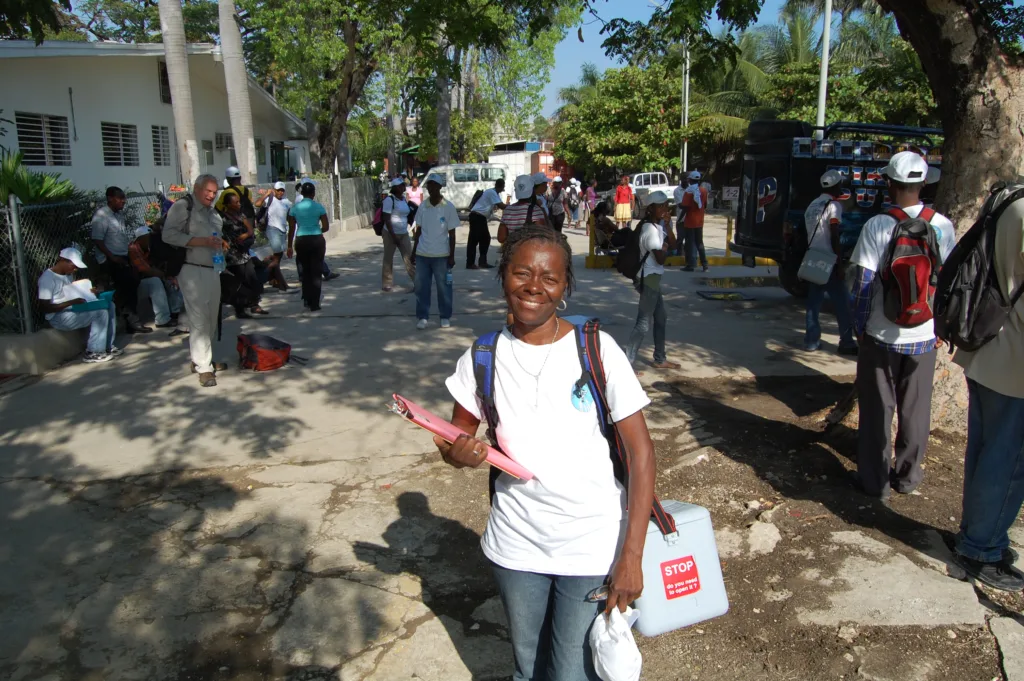
Community Health Workers
GHESKIO employs a large cadre of Community Health Workers (CHWs) that perform outreach to the communities surrounding GHESKIO. The community includes the surrounding slums of Village de Dieu, Cite l’Eternel, and Cite Plus, which comprise ~120,000 inhabitants. CHWs perform active case finding, follow up for appointments to improve retention in care, provide referrals to the GHESKIO clinics when appropriate, and provide home care for thousands of patients.
Cardiovascular disease
GHESKIO, in collaboration with PAHO, the Haitian Ministry of Health, and local stakeholders, has established Haiti’s largest cardiovascular (CVD) research cohort. This initiative provides the first reliable estimates of CVD burden, including prevalence, severity, and disease progression.
To improve care, GHESKIO has trained over 250 clinic staff in hypertension screening, diagnosis, and treatment. Clinics are equipped with updated blood pressure devices and follow WHO HEARTS guidelines for diagnosis, lifestyle modifications, and treatment. A reliable medication supply chain and national hypertension protocols ensure high-quality care.
Key Findings
- Heart failure prevalence: 11.6%—14 times higher than Global Burden of Disease estimates (0.83%). This challenges the assumption that ischemic heart disease is the leading CVD in Haiti.
- High sodium intake: Over 90% of Haitian adults exceed WHO-recommended sodium limits. Young adults (18-30) with high salt intake show elevated systolic blood pressure.
- Lead exposure: Blood lead levels are five times higher than in the U.S., correlating with increased systolic blood pressure.
- Blood pressure control: Only 13.1% of patients achieve adequate control.
- Chronic kidney disease: Strongly linked to diabetes and hypertension, yet only 12% of affected individuals receive treatment.
Experts Dr. Gene Kwan and Dr. Victor Davila-Roman have praised GHESKIO’s work, emphasizing the urgent need for aggressive hypertension treatment to prevent hypertensive heart disease. In an editorial in the American Journal of Clinical Nephrology on these findings, Drs Elena Cervantes and Bernard Jaar state “Findings of this study should serve as a call to action for the global community to prioritize CKD as a public health concern and work towards reducing its burden worldwide, especially in LMIC”.
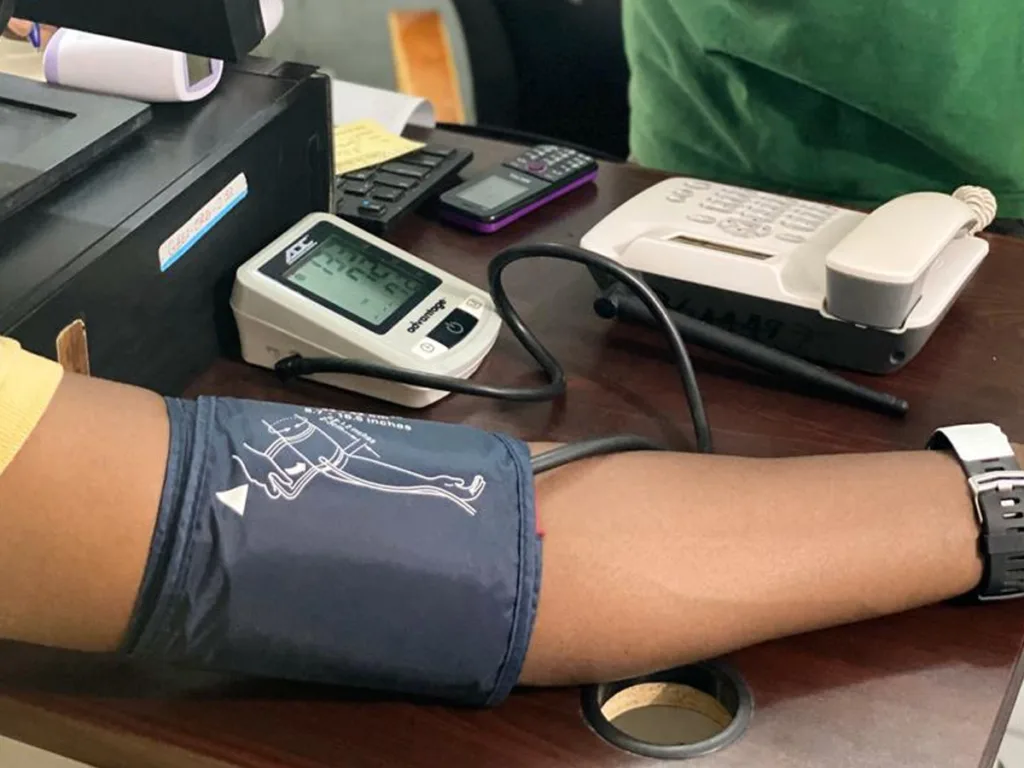
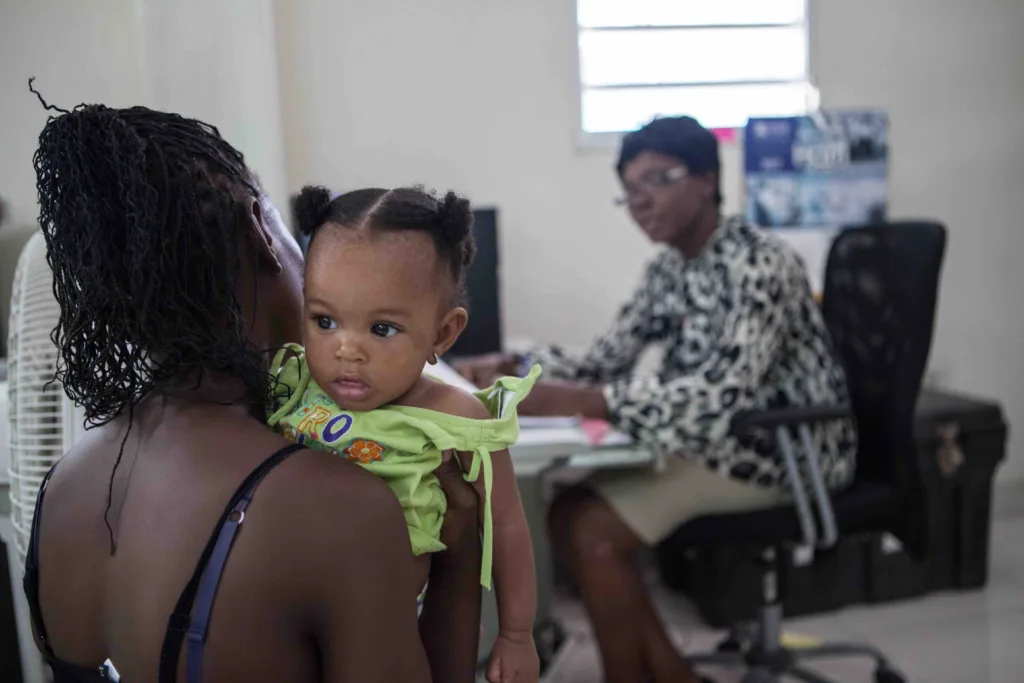
Caring for mothers and children
We care for the most vulnerable in Haiti, especially mothers and children.
Our Mothers’ Program supports the needs of pregnant women and new mothers. Mothers’ Clubs meet monthly so women can learn about prenatal care and infant nutrition and build a support network. Life-skills training builds self-esteem and enables women to improve their health and their lives.
In addition, we conduct community-outreach activities and home visits to refer sick children to our clinic, where they receive best-in-class care.
GHESKIO’s maternal-infant unit receives about 1,500 new pregnant women annually who are followed after childbirth to ensure infants thrive. Nutritional supplements paired with educational counseling sessions on nutrition for mother and child ensure both receive optimal care during critical periods of development; deemed the first 1,000 days of the infant’s life.
Cervical cancer and HPV
Haiti has the highest reported incidence of cervical cancer of any country in the world – 50 times higher than the U.S. Cervical cancer is the leading cause of cancer death in Haitian women.
We’ve made progress in cervical cancer prevention through the introduction of simple and cost-effective “screen and treat” strategies and human papillomavirus (HPV) vaccination.
HPV Vaccination Campaign
In 2016, GHESKIO, in partnership with Merck, the Haitian Ministry of Health, and Zanmi La Santé, introduced the quadrivalent HPV vaccine in urban Haiti.
Field workers were trained in HPV awareness, prevention, and vaccination. Two strategies were used: clinic-based vaccination for adolescents and parents and school-based vaccination by medical staff.
The campaign targeted 2,000 girls aged 9-16. From August to October 2016, 1,994 (99.7%) received the first dose—65% at GHESKIO and 35% in schools (median age: 11). By April 2017, 94% received the second dose, with higher completion rates among school-vaccinated girls.
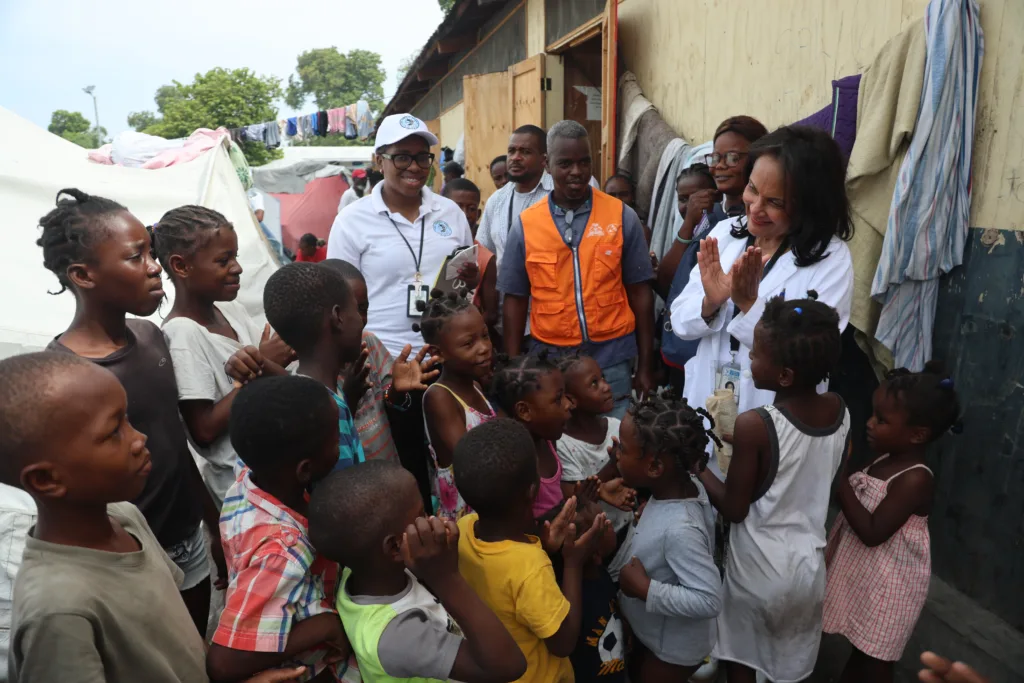
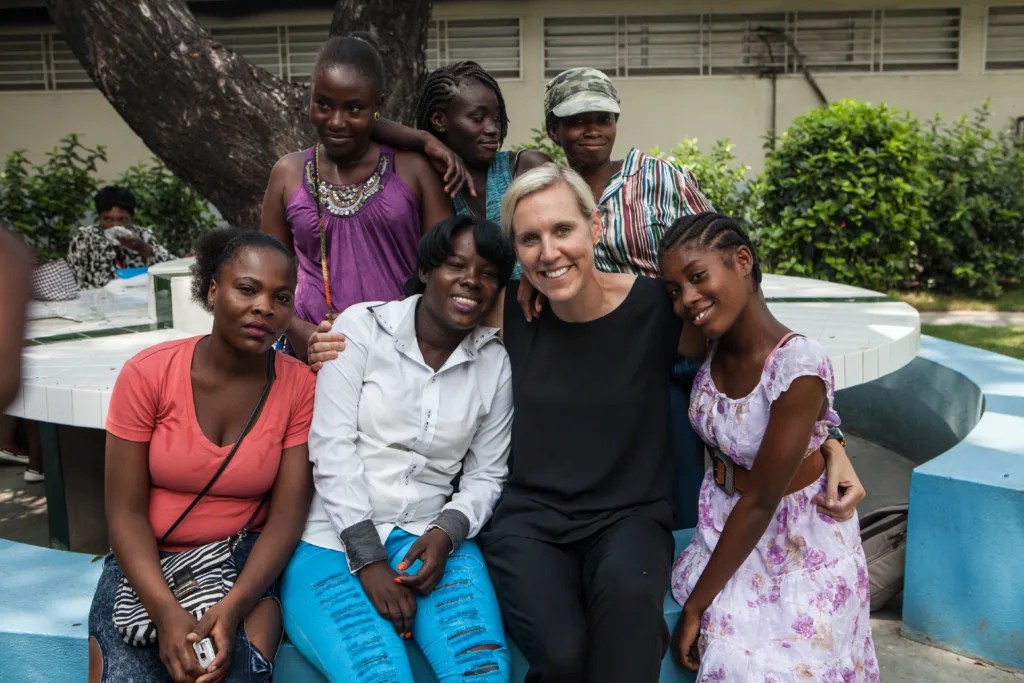
HIV care to protect young girls
Since 2004, HIV-related deaths for adolescents increased by 50%. Adolescents account for 40% of all new HIV infections in Haiti, and 80% of these occur among girls, many of whom live in poverty with little protection from high-risk behaviors.
While medical interventions can prolong lives, teens are a particularly challenging group to reach. HIV-infected adolescents are three times more likely to be lost to care than adults, with only about 50% of HIV-infected teens remaining in care at one year.
Our innovative model of care improves retention among HIV-positive adolescent girls. HIV care takes place in a community center rather than in a medical clinic to strengthen social support and decrease stigma, plus providers and teens meet to address social isolation, gender inequality and unstable families.
Cholera
In 2010, Haiti was hit by the largest cholera epidemic in recent history, with more than 800,000 suspected cases and nearly 10,000 reported deaths. GHESKIO sprang into action immediately with an emergency treatment center, community outreach, water treatment, vaccinations and a specialized hospital. Cholera cases and deaths plummeted, and Haiti was considered cholera-free by mid-2022.
Unfortunately, cholera re-emerged in late 2022. We once again responded quickly, immediately opening two cholera treatment centers. Our teams directly supported the hardest-hit communities, improving sanitation, delivering clean drinking water and providing cholera vaccinations.
